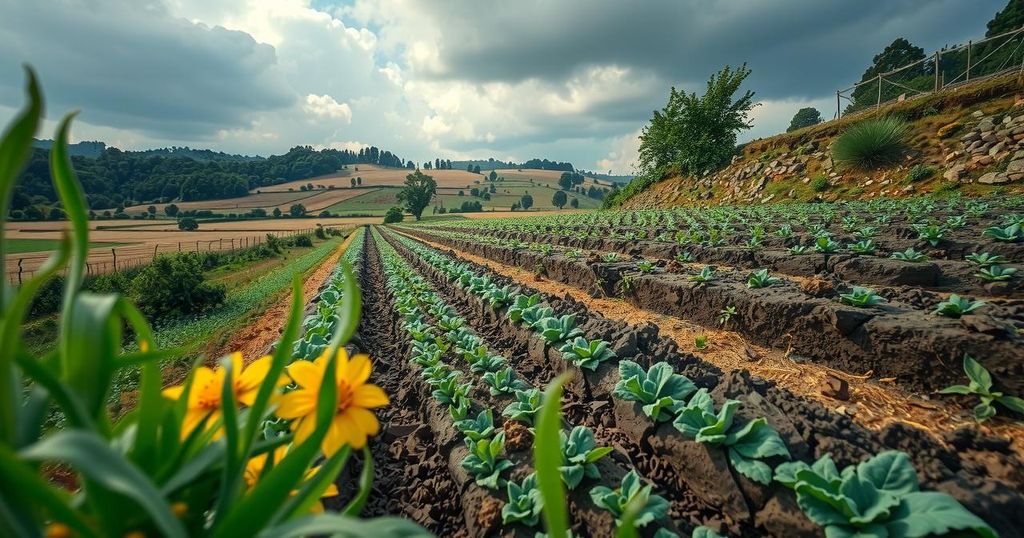Fairtrade producer organisations are increasingly adopting climate change adaptation plans (CCAPs) to bolster production resilience against climate challenges. A recent study indicates that 502 organisations have developed such plans, particularly in coffee production. The implementation of CCAPs has led to improved soil health, increased crop yields, and reduced reliance on chemical fertilizers. Future strategies must consider long-term climate impacts, necessitating further training and collective action for substantial adaptation measures.
In response to the escalating challenges posed by climate change, an increasing number of Fairtrade producer organisations have actively engaged in developing and executing climate change adaptation plans (CCAPs). A recent study by Fairtrade International illustrates that coffee producers are leading this initiative, although organisations producing cocoa, tea, bananas, and sugar are also creating strategies to mitigate threats such as increased temperatures and water scarcity. By the close of 2022, 502 producer organisations had developed their CCAPs, accounting for approximately 25% of all Fairtrade certified producers, with an impressive 96% implementing these plans to varying extents. The research encompassed a comprehensive online survey of Fairtrade producer organisations in Africa and Latin America, involving insights from 37 organisations. Interviews revealed a positive correlation between the development of CCAPs and enhancements in farmer knowledge and production resilience. Commonly adopted measures such as planting disease-resistant crops, soil management, and efficient water usage have been validated as effective means of enhancing climate resilience. Factors supporting successful implementation include farmer training, climate awareness initiatives, and increased access to technical and financial resources. Survey responses indicated significant improvements in soil quality, crop yields, and reduced reliance on chemical fertilizers following the introduction of these plans. Moreover, the researchers emphasized the necessity of robust data collection and monitoring systems to facilitate systematic analysis of the impacts of adaptation measures. Existing CCAPs, while beneficial for immediate challenges, must evolve to contemplate future climate scenarios, recognizing that agriculture may face dire obstacles as climate change intensifies. The research team urged for collective action among producer organisations to facilitate radical alterations in production systems and improve institutional support. They maintained that sustained training, expert guidance, and financial access are crucial for enabling farmers to invest in transformational adaptation technologies and infrastructure.
Climate change poses a significant threat to agricultural production globally, particularly affecting Fairtrade farmers who rely on stable weather conditions for their crops. The implementation of climate change adaptation plans has emerged as a vital strategy to counteract these adverse effects. This article discusses a recent study examining the prevalence, implementation, and outcomes of such plans among Fairtrade producer organisations, highlighting the ongoing efforts in mitigating climate-related challenges faced by farmers in various sectors, particularly coffee, cocoa, tea, bananas, and sugar.
In conclusion, the proactive measures taken by Fairtrade producer organisations in developing and implementing climate change adaptation plans reflect a commitment to resilience in the face of climate challenges. The study affirms that these plans have not only contributed to improved agricultural practices and production yields but also fostered greater awareness and knowledge among farmers. As the threats of climate change continue to evolve, it is imperative for these organisations to enhance their strategies while ensuring continuous support and adaptation to sustain agricultural viability.
Original Source: www.fruitnet.com






